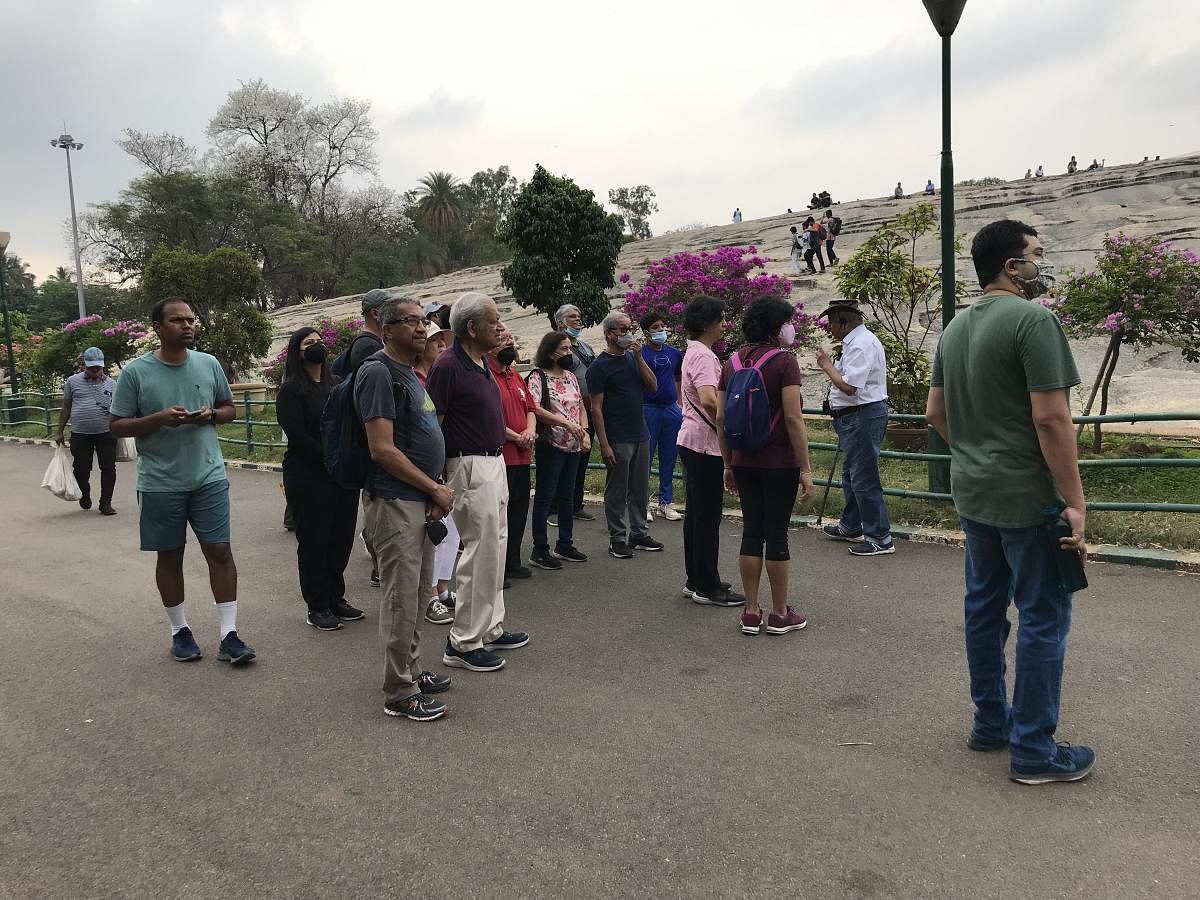
With the pandemic cases at its lowest in Bengaluru right now, guided walks and tours are returning.Back in the game after a two-year hiatus is Bangalore Walks, an organisation that was conducting city walks since 2005 until the Covid-19 crisis put a pause on their gatherings.
On Sunday morning, Metrolife joined Vijay Thiruvady, one of the trustees of the Bangalore Environment Trust, for a tour of the more than 250-year-old Lalbagh Botanical Garden alongside 18 other participants in the age group of 20 to 75.
An octogenarian, Vijay is the author of Lalbagh – Sultan’s Garden to Public Park, which distills the evolution of this iconic green space in a book.
Lalbagh is a popular destination for joggers and tourists yet many fail to take the time to explore the garden’s fascinating past, felt Vijay. “The garden, founded by Sultan Hyder Ali, has three important features: a 3-billion-year-old rock that predates the Grand Canyon in the United States, a lake, and a great array of plants and trees from all across the world,” he informed as we started our walk from the base of the rock at Lalbagh’s East Gate.
During the stroll, we covered a wide range of topics – from the plants in the garden to how they were brought to India and how plants have influenced local cultures. For Vijay, his source of information are archives from around the world and years of research. Beside being an encyclopedia on Lalbagh, Vijay is a riveting storyteller, making him one of the long-time facilitators with Bangalore Walks.
One of the most intriguing facts about Lalbagh is that the megalithic man’s remains dating from 1,800 BC to 3,000 BC were discovered a stone’s throw away from the peninsular gneiss (Lalbagh Rock), implying that the early man lived here. Roman gold coins, used as measuring weights rather than currency, were also discovered within Lalbagh, suggesting this could have been a trade route millennia ago, he added.
Changing times
Before the pandemic, Bangalore Walks used to hold guided tours on a weekly basis but now they organise tours with interested groups on request with prior booking, informs Arun Pai, who started Bangalore Walks 17 years ago. The organisation is now making what it calls Video Walks for people who want to go on self-guided walks. They will have to follow the route map as recorded on a video by the team.
Contact: bangalorewalks@gmail.com
What to look for
Over 70% of the trees in Lalbagh are rare or exotic, and each has a fascinating story to tell — from how the Madagascar palms are pollinated in India to how the juniper berries saved the British from Malaria.
Here are a few trees to keep
an eye out for:
Fig tree (Ficus benjamina)
Elephant Apple tree
(Dillenia indica)
Kapok tree
(Ceiba pentandra)
New Caledonian Pinet tree (Araucaria cookie)
Juniper trees (Juniperus procera)
Other walks
Benagluru By Foot has resumed its city heritage tours. Contact: 80412 03095
Oota Walks will reopen its guided walks related to city’s food and heritage in June.
Contact: simi@ootacompany.com